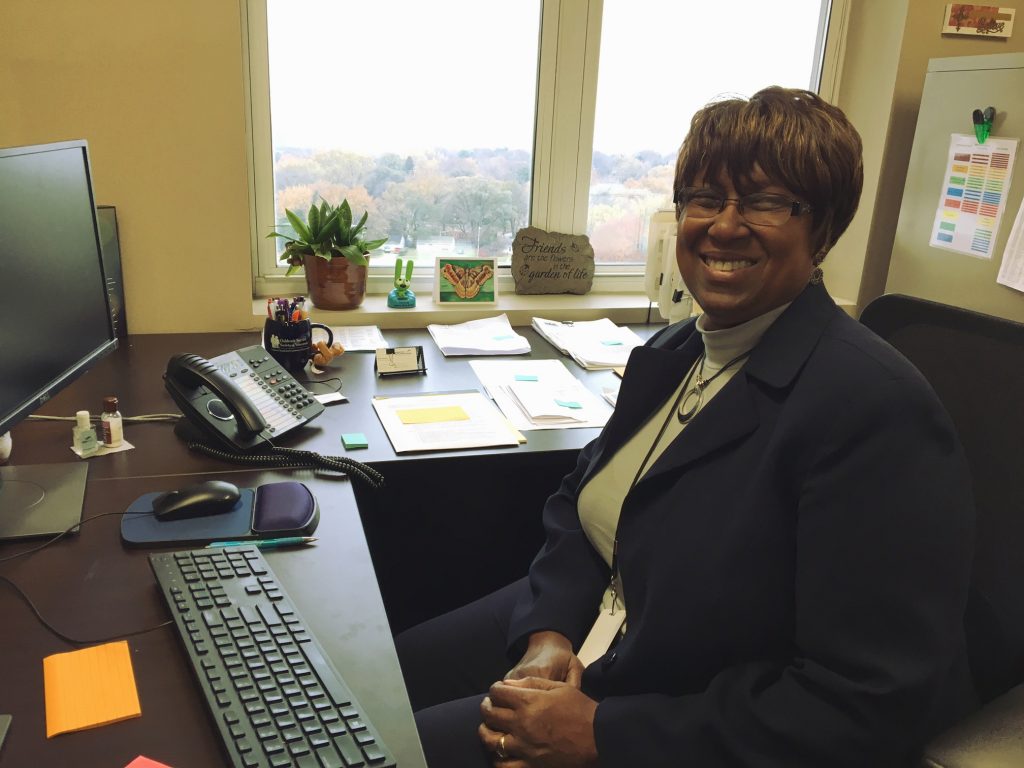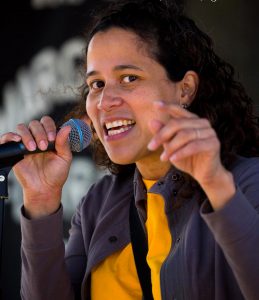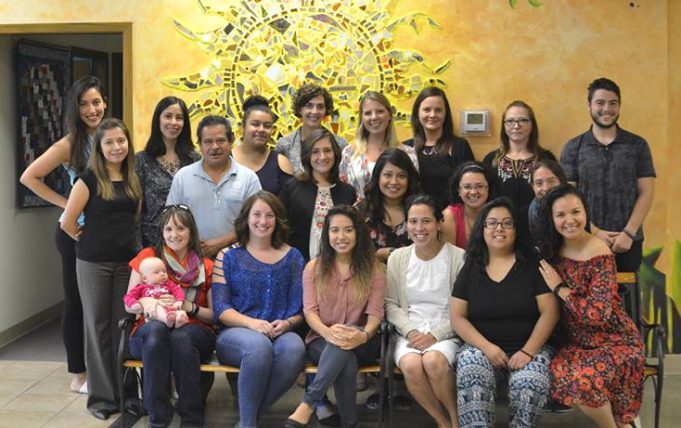In January of 2020, Madison College will be offering a special educational program for a pre-selected group of professional workers from Dane County’s Division of Children Youth & Families, as well as staff members from Centro Hispano.
The program is the result of a $63,000 Wisconsin Fast Forward grant from the Wisconsin Department of Workforce Development (DWD) that will pay for continued education for eight Dane County and five Centro Hispano staff members. The focus will be on allowing workers of color to have the education that will bolster their skills and resumes, and give more opportunities for career advancement and sustainability.
The grant comes in response to issues around upward mobility in the workplace, especially for people of color.
“When I first started there was some discussion with the staff – it’s mostly staff of color- and one thing they offered in feedback was that there often isn’t opportunities for promotions or higher positions,” Martha Stacker, division administrator for Dane County’s Division of Children Youth & Families, told Madison365. “There’s often no movement without a degree. There are sort of mid-level management positions that are available without a degree, and I wanted to change that within the division.”

Stacker spoke with Karen Menendez Coller, the executive director at Centro Hispano, about the issues she was seeing at a county level. Menendez-Collier said that they were having similar issues over at Centro and that it would be great if there was a mechanism by which to help staff who don’t have college degrees be able to attain higher administrative positions.
The cohort will start in January at the new Goodman South Campus of Madison College. The members of the cohort will have all of their semester costs and transportation paid for by the grant. In January, the cohort will go through an orientation, pre-testing, and tour the new Madison College facilities. They will be taught by instructors from the school of Human and Protective Services, with a curriculum specific to human services.
“The people from Dane County doing this are program leaders who work specifically in youth justice,” Stacker told Madison365. “they work in areas with youth that need intervention and they work with kids in the community meeting court required things or extracurricular activities, programs or groups. Working with the schools has been where they assist very much. They’re a huge strength in the community.
“Then there are people in child protective services,” she adds. “They schedule and do reunification with children and parents, supervise visits in the community, and do a lot of coordination with families.”
Continued secondary education will allow the members of the cohort to have participated in a few training opportunities to get higher-level positions.
“I’ve created some positions that don’t need a degree. They could compete for those positions,” Stacker says. “But also they might just need these college credits to get a bachelor’s [degree] or some other degree. It just sets up a career pathway and many people just haven’t had the opportunity to afford this.”
Centro Hispano employs an extraordinarily diverse staff. Staff members at Centro, as well as at Dane County, come from a wide spectrum of education levels. Some staffers didn’t go beyond high school and others did some college but finished without a degree. This program will take people wherever they are and give them training and education at a strong college level.

“This grant is so significant to building Centro’s capacity as an organization, an important part of our strategic vision,” Menendez Coller said in a statement. “We are proud that staff at Centro is representative of our Latinx community and proud to prioritize the professional growth and advancement of our staff.”
Madison College, for its part, remains committed to providing a platform for workforce development especially for communities of color.
“We see this partnership with Dane County Human Services and Centro Hispano as an excellent opportunity to support the professional development of their current employees. Completion of this series of courses will build the participants’ skills and capacities, lead to an increase in wages, and provide credit-based learning that can be applied towards a later degree if the participant chooses to continue his or her education. We are very much looking forward to the work we will be doing in the coming year.”


































